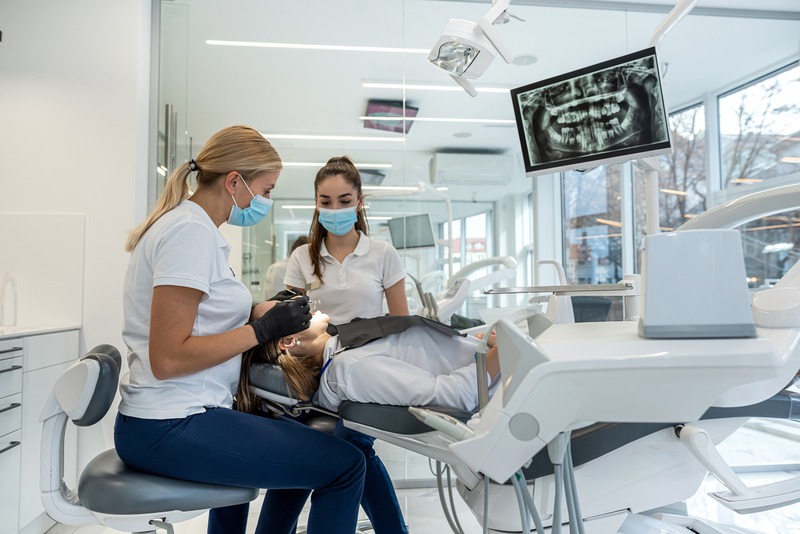
Why Consider Holistic Alternatives to Root Canals?
Diving into dental health often uncovers the traditional root canal treatment, a standard response to severe tooth infections. Yet, an increasing number of individuals are turning to holistic alternatives, driven by concerns about the potential side effects and complications linked to conventional methods. These holistic options provide a pathway that not only enhances oral health but also aligns with a more natural and comprehensive approach to overall well-being. Understanding these alternatives could be beneficial for those seeking a different route in dental care.
Conventional Root Canals
Root canals are aimed at salvaging a tooth by removing its infected pulp. This sounds straightforward, yet some aftermath issues concern many patients. Common challenges include persistent discomfort, the risk of infection despite treatment, or even concerns about the materials used in the procedure. These points often lead individuals to explore other options that might provide a more integrated solution to dental health concerns.
Potential Drawbacks of Root Canals
-
Possibility of Re-infection: The process might not completely remove all bacteria.
-
Chemical Exposure: Concerns about synthetic materials used in the procedure.
-
Long-term Sensitivity: Possible ongoing discomfort after the procedure.
-
Additional Procedures: Sometimes, further treatments are needed, leading to more visits.
-
Natural Tooth Preservation: A desire to maintain as many natural teeth as possible.
The Holistic Approach Explained
Holistic dental care places emphasis on natural methods and materials. This approach offers a comprehensive look at health by focusing on the root causes rather than just addressing symptoms. It often integrates lifestyle adjustments with dental treatment, aiming to create a balanced approach that supports overall well-being. For those wary of synthetic substances or looking for less invasive options, holistic dentistry might present a viable alternative.
Alternative Dental Solutions
Several holistic alternatives exist for those reconsidering root canals:
-
Ozone Therapy: A technique that aims to kill bacteria and promote dental healing through ozone gas.
-
Use of Herbal Remedies: Implements natural herbs to support gum health and manage pain without relying on pharmaceuticals.
-
Laser Therapy: An approach that uses focused light to address infections, minimizing the need for invasive measures.
-
Oil Pulling: An age-old remedy involving swishing oil in the mouth to remove toxins and improve oral cleanliness.
-
Bio-Compatible Materials: These materials are chosen for their harmonious interaction with the body’s natural chemistry.
Advantages of Choosing Holistic Dental Care
Why should one consider these holistic alternatives? Here are some points to ponder:
-
Reduced Chemical Use: Natural and bio-compatible materials lower the risk of allergic reactions and toxicity.
-
Support for Overall Health: The method often includes guidance on nutrition and stress management, which can improve both oral and general health.
-
Minimized Risk of Future Needs: By addressing the underlying issues, these options may reduce the likelihood of needing excessive dental work later.
-
Focus on Preventive Care: The approach encourages regular check-ups and lifestyle changes that prevent illnesses before they develop.
Moreover, cosmetic enhancements like KoR bleaching by New Jersey’s biological dentist demonstrate how alternatives are not only about treating ailments but enhancing the natural beauty of teeth. Choosing providers that integrate holistic with modern cosmetic procedures can complement a holistic dental health plan.
Examining Holistic Alternatives Further
In regions like New Jersey, practitioners specializing in holistic alternatives may provide services such as ozone therapy or laser treatments. These are examples of how local professionals adapt holistic practices to modern dental needs, offering solutions that blend tradition and innovation. Choices like these allow individuals to explore a balance between effective treatment and minimal intervention.
Cosmetic solutions within the holistic framework also include options like porcelain dental veneers for smile imperfections, which present a minimally invasive way to enhance aesthetics. Unlike traditional options, these align with holistic principles by considering aesthetic improvement alongside natural dental health.
Embracing Preventive Care
A significant aspect of holistic dentistry is the emphasis on prevention. Preventive measures help ensure that issues are tackled before they require complex interventions. Such measures include enhanced home care practices like natural toothpaste and regular oral hygiene. Flossing, potentially with natural floss alternatives, ensures comprehensive cleaning between teeth.
Evaluating diet and lifestyle factors also plays a crucial role, with patients encouraged to adopt changes supporting dental and systemic health. For example, focusing on nutrition can lower the risk of cavities, while regular cleanings keep plaque build-up under control. Holistic practitioners may recommend personalized regimens to help maintain these results over time.
Professional Guidance and Options
Consulting a professional familiar with both holistic and traditional practices is vital when considering these alternatives. In areas with professionals offering services like holistic alternative to root canal in New Jersey, individuals could explore the potential benefits directly through consultation. These practitioners can offer guidance tailored to specific oral health needs, balancing natural approaches with effective treatments.
Closing Remarks
The journey into holistic dental care opens doors to preserving oral health with natural methods and promoting overall wellness. While traditional root canals remain a viable solution, holistic alternatives offer a unique path that aligns with personal health philosophies. This path provides comfort and reassurance for those seeking a blend of traditional knowledge and modern techniques. Exploring these options through informed decisions and professional advice can guide individuals toward a dental care regime that mirrors their lifestyle and health beliefs.
